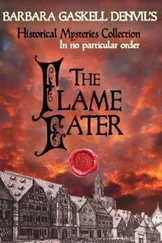From our portable radio came word that studies had returned, pinpointing children as the culprit. The word carrier was used. The word Jew was not. The discussion was wrapped in the vocabulary of viral infection. There was no reason for alarm because this crisis appeared to be genetic in nature , a problem only for certain people , whoever they were.
It was probably only contagious within a certain circumference.
Allergy is such a broad word, claimed one of the experts on the news. Of course, to some degree, we are allergic to everything. But we react at different rates, sometimes so slowly that we never show symptoms.
I imagined myself tearing up this man’s credentials, burying him in a hole.
As our tools of detection improve, we see more symptoms .
At this point it was not a terrible idea, if you felt you fit the category , to bring your child in for testing.
When they started listing counties, I turned off the radio.
The day defaulted with small eruptions of chatter until the air fell cold at the appointed hour. The sun looked ready to falter. Our neighbors drifted off, helping each other from the field in a long, slow shuffle until Claire and I were alone.
This was what we wanted. We usually waited late into the afternoon for everyone to leave so we could have the last bright minutes of the day to ourselves.
At a high southern swell in the field, past the fire pit, a sight line down the ledge into the tangle of evergreens allowed us to see the rough location of our forest synagogue, a little two-person hut hidden in the woods.
If our hut had an antenna, perhaps it would surface through the trees and serve as a landmark. Maybe on a day like this we could look down from the field and see it. But our hut used no antenna, so from the field you could never see the structure itself or even the little trail we took each Thursday up from the creek bed to get there. From above you couldn’t see anything but woods. From above you couldn’t be sure that our synagogue existed. Sometimes even inside it, while Rabbi Burke’s sermon pumped from the strange radio, I felt the same way.
Claire and I held hands as the field darkened and we said nothing. Our silence was a rule of the synagogue, something we swore to when we were first entrusted with membership. We did not discuss what we heard there, nor did we discuss the hut itself. Even just looking at it from this elevation in the field we remained, by mandate, quiet.
But I wouldn’t have had it any other way. The enforced silence was a relief. Because all talk was banished we could not disagree, we could not mutually distort what we heard during services. There was nothing to debate, nothing to say, and the experience remained something we could share that would never be spoiled with speech.
On the footpath back to the car, we passed people huddled in the woods, voices warped in dispute. A man wept and a woman seemed to berate him in whispers. Normally when couples fought, Claire and I put our heads down and charged past them, congratulating ourselves later for getting along so well. We’d never fight like that! Out in public! We were better than that!
But this didn’t seem like a domestic argument.
Through the trees, in the grass, sat a man and woman I recognized from the picnics. They had two kids I didn’t much enjoy, boys who belted each other and fell down so often, they seemed immune to pain and probably the higher feelings as well. But I didn’t see the boys now, only the parents.
Standing over them was a large man with red hair, wearing an athletic suit. He was not one of the regulars from the field. I didn’t know him.
“Everything okay?” I called into the trees.
The couple didn’t respond, just whispered harder.
“We’re good,” the tall redhead finally answered, and when the man groaned, the redhead seemed to shush him.
Are you speaking for everyone? I didn’t ask.
The redhead looked back through the trees, weaving to get an angle on us, but I’m not sure what he could see.
Claire pulled on my arm. “C’mon,” she said, “let’s go.”
It was getting darker and colder and Claire and I were too tired to have been out this long. She tugged on me and leaned downhill, pleading.
“Maybe I should call someone,” I whispered to Claire, pulling against her.
But the redhead must have heard me.
“We’ve already called someone, they’re coming. Everything’s taken care of.”
He didn’t look our way. He seemed to be trying to block my view of the other two. If I could have examined them, would I have seen the facial smallness, felt a hardened callus forming under their tongues? Would there have been a yellow stain in their eyes?
Claire started off downhill without me, said she’d meet me at the car.
The redhead went to his knees, folding his huge body over both of them as if he might protect them from a blast. Then a distant, small sound, a kind of high-pitched whine, pierced the air. But it could have been anything, really. It probably was.
I waited and heard nothing, then struck off down the path back to the car.
When I looked back one last time, the redhead had emerged from the woods and stood by himself on the path. He didn’t see me, just started heading uphill, back to the field, which was empty by now, and certainly growing dark.
I couldn’t think what a man like that would want up at a Jewish picnic field at night.
This was Murphy, walking away from me. I would formally meet him in a week, and not by accident. He was already canvassing Jewish families, probably had been for months, or even longer. Canvassing might not be the word for what he was doing. Cornering , manipulating , extracting . There is no precise word for this work. There can’t be. In the end our language is no match for what this man did.
That evening we got to work on Esther’s welcome-home dinner. We cooked in silence. This was us at our best, stew building, salad making, sweating, and braising. We cleaned as we went and we bussed each other’s dishes. Maneuvering around each other with polite touches on the arm. Claire and I were suited for joint tasks, parallel play. We were proud of how well we got along in the kitchen, when married couples were supposed to drive each other to violence while assembling a sandwich. Harmony came easily for us, and it was perhaps our most salient statistic, the least problematic of our virtues.
When Esther returned, we didn’t know it at first. She slipped quietly into the house and went to her room. The bus must have dropped her off, but we heard no greeting when she came in and our little welcome home ceremony never happened. Claire was putting some laundry away as I was setting the table when I heard her yell, “Oh my god, you’re back!”
A blast of one-sided chatter filled the air. Countered by the return fire of Esther’s silence. I saw no reason to intrude on their reunion. I waited at the table as Claire’s voice muddied into nothing against some part of Esther. This would have indicated the hugging and nuzzling, the probably exaggerated joy. I could picture Esther half squirming away, too embarrassed to openly enjoy the affection of her mother, but not cold enough to flee it entirely. I was bracing for her ambivalence to mature into a more liberal hostility.
“Esther’s home!” Claire shouted.
I held my ground.
Esther’s allergy to ceremony was predicted by all the guides we’d half read about teenagers. We saw it coming, then put our heads in our own asses. We were warned, but still we insisted on basic politeness as part of some dim instinct we had to remain in control. Esther abhorred all the functional vocal prompts one bleated in order to stabilize the basic encounters, to keep them from capsizing into awkward fits of milling and hovering. Hello and good-bye and thank you to strangers; good morning and how are you. These phrases were insane to her. She would pick the simplest rituals, the most basic behavior that people keep in their back pockets and whip out without a fuss, and wage dark war against them, scorning us mightily for caring about the exchange of niceties.
Читать дальше











